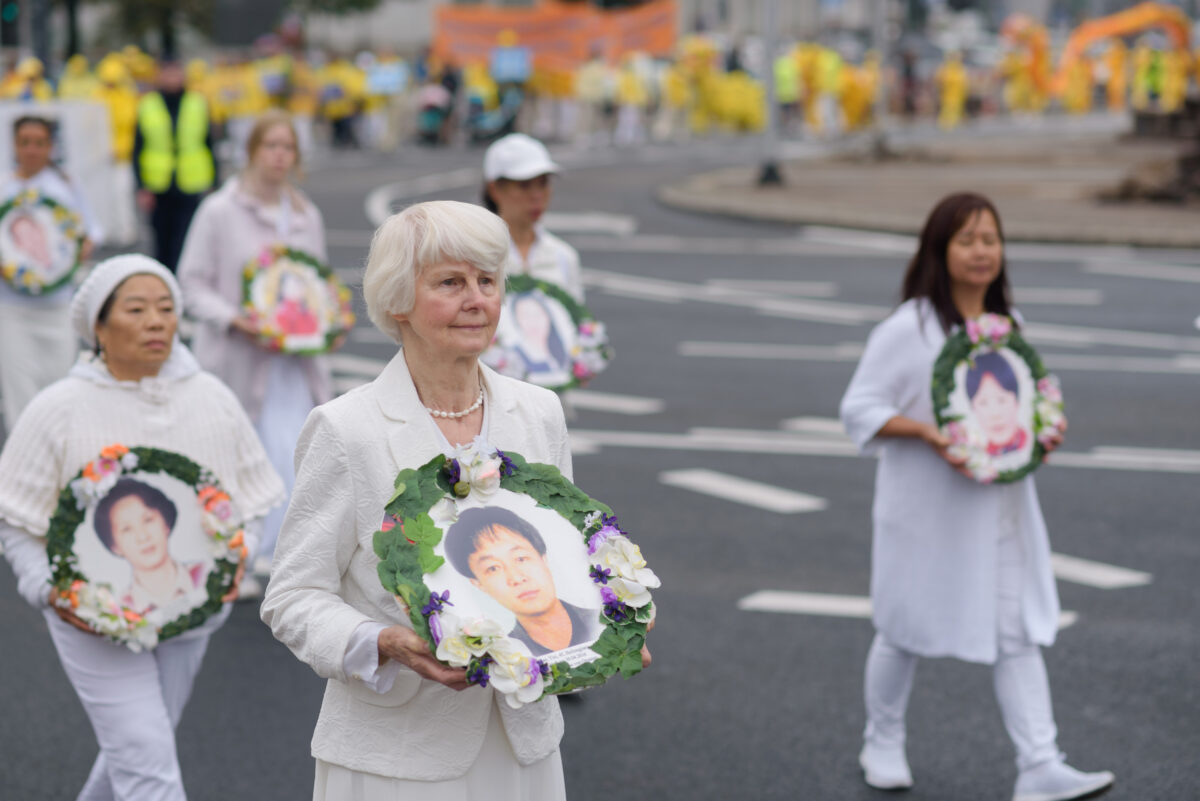


The European Court of Human Rights has found it unlawful for Russia to ban on publications of the spiritual practice Falun Gong and materials shedding light on the ongoing persecution targeting the faith in China.
In a Jan. 31 ruling, the Strasbourg Court held that Russia’s ban—imposed on four Falun Gong informational materials, including its main book “Zhuan Falun”—violated freedom of expression as defined in the European Convention on Human Rights.
The Pervomayskiy District Court in Krasnodar first issued the ban in August 2008, around the time Beijing was hosting its first Olympic event, applying the extremist label on the Falun Gong book, two pamphlets serving to introduce the practice and promote a worldwide Olympic torch protest meant to highlight the human rights abuses targeting the faith, as well as an investigative report on the Chinese regime’s state-led forced organ harvesting.
Forced organ harvesting, which has killed an undisclosed number of victims, is part of an expansive persecution campaign under the atheist Chinese Communist Party (CCP) since 1999 aiming to eradicate Falun Gong in its country of origin. The practice embodies the principles of truthfulness, compassion, and tolerance, along with five meditative exercises. It had an estimated following of up to 100 million in China at that time, and it currently has a presence in over 100 countries around the world.
The ban on publishing and disseminating these materials “amounts to ‘interference by a public authority’ with the applicants’ right to freedom of expression,” the Strasbourg Court ruled on the complaint filed by two Russian nationals, Mikhail Vladimirovich Sinitsyn and Sergey Nikolayevich Alekhin, both adherents of Falun Gong.
The Strasbourg Court found that the Russian legal authorities, in their 2008 decision and subsequent hearings, didn’t conduct their legal analysis of the publications’ texts and didn’t substantiate the claimed harms of disseminating the materials.
The Russian courts “failed to assess the necessity of banning the publications with regard to the context in which they were published, their nature and wording, and their possible harmful effect,” the Jan. 31 judgment stated.
“Moreover, the courts did not even mention, let alone discuss at any length, the effect of the ban on the applicants’ rights under Articles 9 and 10 of the Convention (ibid., § 277), thus failing to weigh their rights against the public interest,” it added, citing the sections protecting freedom of expression and speech (pdf).
The European human rights court ordered Russian authorities to pay two plaintiffs 7,500 euros ($7,984) each as compensation and a combined 3,096 euros ($3,296) for any costs and expenses related to the case, along with any applicable taxes.
Russia withdrew from the Council of Europe in mid-March 2022 and refused to comply with the European human rights court’s judgment issued afterward. It officially ceased to be a part of the European Convention on Human Rights last September.
But the Council of Europe’s Committee of Ministers stated that it would consider all applications filed before Russia’s official exclusion from the human rights body and monitor the implementation of its decisions.
Levi Browde, executive director of the Falun Dafa Information Center, welcomed the European court decision, adding that he hopes to “remind the Russian authorities that it never works out to collaborate with the CCP.”
“However, we recognize Moscow is not the CCP and still think Russian authorities can right their course and not do the CCP’s bidding in suppressing religious freedom,” he told The Epoch Times.
The restrictive environment in Russia has drawn U.S. concerns in the past. In July 2021, after a Russian court upheld a ban on the Khakassia regional branch of Falun Gong, the State Department spokesperson Ned Price issued a statement expressing deep concerns over the act of repression.
“Russian authorities harass, fine, and imprison Falun Gong practitioners for such simple acts as meditating and possessing spiritual texts,” Price said. “We urge the Russian government to end its practice of misusing the “extremist” designation as a way to restrict human rights and fundamental freedoms. We continue to call on Russia to respect the right of freedom of religion or belief for all, including Falun Gong practitioners and members of other religious minority groups in Russia simply seeking to exercise their beliefs peacefully.”
Currently in Russia, Falun Gong adherents have continued to face pressure for adhering to their beliefs.
In November, the Mezhdurechensk city prosecutor’s office filed a lawsuit seeking to ban several Falun Gong publications. The court ruled in favor of the adherents in December, but the prosecutors on Feb. 2 appealed. A hearing at the Kemerovo Regional Court is scheduled for March 2.


